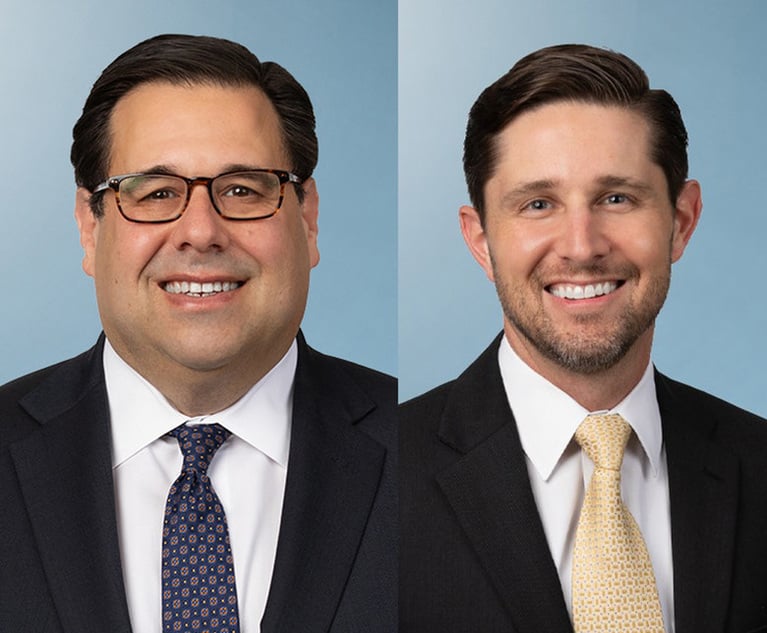After over two years of deliberation on proposed amendments “to enhance and standardize climate-related disclosures for investors,” on March 6, 2024, the U.S. Securities and Exchange Commission (SEC) adopted final rules on climate-related disclosures. The final rules require public companies to include certain qualitative and quantitative disclosures in their annual reports and registration statements related to the following:
- Climate-related risks that have materially impacted or are reasonably likely to materially impact a company’s strategy, business model, outlook, results of operations, and financial condition.
- Activities to mitigate and adapt to material climate-related risks or the use of transition plans, scenario analyses or internal carbon prices to manage such risks.
- Oversight of climate-related risks by the company’s board of directors and assessment and management of climate-related risks by the company’s management.
- Processes used to assess and manage climate-related risks.
- Climate-related targets or goals that have materially impacted or are reasonably likely to impact a company’s business, results of operations or financial condition.
- Scope 1 or 2 greenhouse gas (GHG) emissions and an attestation of the disclosure of such Scope 1 or 2 GHG emissions, on a phased in basis based on the company’s filer status.
- Effects of severe weather events and other natural conditions including expenditures and losses and capitalized costs and charges on the company’s financial statements.
Companies will be required to electronically tag the climate-related disclosures in Inline XBRL.
The climate-related disclosure requirements have garnished intense scrutiny by companies and stakeholders since the release of the proposed climate-related disclosure rules in March 2022 given the scope and complexity of the rules and the costs of compliance. As a result, not long after they were adopted the final rules became the subject of multiple lawsuits and were stayed by the SEC as further described below.
Summary of Final Rules
The final rules add a new subpart 1500 to Regulation S-K and Article 14 to Regulation S-X.
Regulation S-K
Subpart 1500 of Regulation S-K will require companies to address the following, among other things:
Governance: Companies must disclose the role of the board of directors in overseeing climate-related risks and the role of management in assessing and managing climate-related risks including the management positions or committees responsible and the processes and reporting structures established for managing and assessing such climate-related risks.
Strategy: Companies must disclose climate-related risks that have materially impacted or are reasonably likely to impact a company’s strategy, results of operations or financial condition and the extent of the company’s exposure to such risks. Companies should disclose the impact of the climate-related risks on the company’s business operations; products or services; suppliers, purchasers or counterparties; research and development expenditures; and activities used to mitigate or adapt the climate-related risks, as applicable. If the company uses a transition plan, scenario analysis or internal carbon price to evaluate, manage or assess climate-related risks, the company must provide additional disclosure such as a description of the transition plan, a summary of the various scenarios and parameters, assumptions and analytics used in the scenario analysis or the various internal carbon prices used. Additionally, companies must disclose whether the company considers the impact of the climate-related risks in its risk management strategy, financial planning and capital allocation.
Risk Management: Companies must disclose the processes used to identify, assess, and manage climate-related risks. Companies should address, as applicable, whether the company has or is reasonably likely to incur physical or transition climate-related risks, whether the company has decided to mitigate, adapt or accept such climate-related risks and whether the company prioritizes the climate-related risks.
Targets and Goals: Companies must disclose climate-related targets or goals that have materially affected or are reasonably likely to materially affect the company’s business, results of operations or financial condition. For the company’s climate-related targets and goals, the company should include a description of the scope of activities, units of measurement, time horizon, baseline, and actions taken and progress toward such targets and goals.
GHG Emissions: Large accelerated filers and accelerated filers must disclose Scope 1 and 2 GHG emissions, separately, in the aggregate, and excluding the impacts of any purchased or generated offsets, for the most recently completed fiscal year in SEC filings. In addition, large accelerated filers and accelerated filers must disclose the company’s methodology, inputs, and assumptions for calculating such GHG emissions including the organizational and operational boundaries and protocol, or standard used to report the GHG emissions.
Attestation: Large accelerated filers and accelerated filers must provide attestation reports at a limited assurance level for the company’s Scope 1 and 2 GHG emissions disclosures for filings made beginning the third fiscal year after the compliance date. Large accelerated filers must provide attestation at the reasonable assurance level for the company’s Scope 1 and 2 GHG emissions disclosures for filings made beginning the seventh fiscal year after the compliance date. Attestation reports must be provided pursuant to standards which are publicly available or widely used and established by a group that adheres to due process procedures.
Regulation S-X
Article 14 of Regulation S-X will require companies to address the following, among other things:
Expenditures and Losses Resulting From Severe Weather Events and Natural Conditions: Companies may be required to disclose in their financial statements the aggregate amount of expenditures and losses incurred during the fiscal year due to severe weather events and natural conditions if the aggregate amount of expenditures and losses equals or exceeds 1% of the absolute value of income or loss before income tax expense or benefit for the corresponding fiscal year. However, disclosure is not required if the aggregate amount of expenditures and losses is less than $100,000 for the corresponding fiscal year.
Capitalized Costs and Charges Resulting From Severe Weather Events and Natural Conditions: Companies may be required to disclose in their financial statements the aggregate amount of capitalized costs and charges incurred during the fiscal year due to severe weather events and other natural conditions if the aggregate amount of the absolute value of the capitalized costs and charges equals or exceeds 1% of the absolute value of the stockholders’ equity or deficit at the end of the corresponding fiscal year. However, disclosure is not required if the aggregate amount of capitalized costs and charges is less than $500,000 for the corresponding fiscal year.
Carbon Offsets and RECs: If a company uses carbon offsets or renewable energy credits or certificates (RECs) as a material component of the company’s plans to achieve its climate-related targets and goals, the company must disclose the aggregate amount of carbon offsets and RECs expensed and recognized and the losses incurred on the capitalized carbon offsets and RECs.
Contextual Information on Financial Statement Effects: Additionally, companies must provide contextual information on the effects of the climate-related events on their financial statements including a description of inputs, assumptions, judgments, and other information important to understand the effects on the financial statements and policy decisions made by the company, as applicable. Companies that disclose expenditures and losses and costs and charges resulting from severe weather events and natural conditions must disclose the aggregate amount of any recoveries recognized during the fiscal year.
Compliance Dates
Subject to the status of the litigation described below, companies will be required to comply with the final rules on a phased in basis according to the company’s status as a large accelerated filer, accelerated filer, nonaccelerated filer, or smaller reporting company, as follows:
 Courtesy image
Courtesy image
Litigation on the Final Rules
Following the adoption of the final rules, Liberty Energy Inc. and Nomad Proppant Services filed a motion on March 8, 2024, in the U.S. Court of Appeals for the Fifth Circuit seeking an administrative stay pending judicial review of the final rules. Numerous other companies and stakeholders filed lawsuits related to the final rules alleging that the final rules exceed the SEC’s authority, are arbitrary and capricious under the Administrative Procedure Act or violate the first amendment as impermissibly compelled speech. As a result, the judicial panel on multidistrict litigation issued an order on March 21, 2024, consolidating the petitions for judicial review in the Eighth Circuit. In response to the pending judicial review by the Eighth Circuit, on April 4, the SEC chose to voluntarily stay the final rules to avoid potential regulatory uncertainty if companies became subject to the final rules while litigation is ongoing. In the order, the SEC reinforced its support of the final rules and its intent to vigorously defend the rules.
Practical Implications of the Legal Challenges
While the status of the final rules remains uncertain, the SEC’s 2010 climate guidance continues to apply. Companies should continue to consider providing more robust disclosure on climate-related risks and their impact on the company’s business, results of operations and financial condition in response to demands from investors and to comply with rules and guidance set forth by the SEC, states, other regulatory agencies and other advisory bodies. In addition, companies should continue to monitor the developments in the litigation on the final rules. In particular, it is not clear if the SEC will ultimately extend the compliance date of the final rules if the rules withstand the legal challenges. As such, it would be wise for large accelerated filers to continue to prepare for the disclosure requirements given the significant undertakings ultimately required to comply.
Katayun I. Jaffari is chair of the corporate governance group and co-chair of the capital markets & securities and ESG groups at Cozen O’Connor. She counsels public and private companies in the areas of corporate governance and securities law and compliance, including capital-raising transactions and reporting requirements under SEC, NYSE and Nasdaq regulations, as well as providing general corporate advice and execution with respect to executive compensation, mergers and acquisitions transactions and board and business counseling, including with respect to ESG and DEI matters. She can be reached at [email protected] or 215-665-4622.
Mehrnaz Jalali is a member in the capital markets and securities and corporate governance groups at the firm. She advises companies on corporate governance, securities offerings, SEC disclosure and reporting, annual meeting and proxy matters, investor and shareholder relations, ESG matters, compliance with stock exchange listing standards and general corporate matters. She can be reached at [email protected] or 212-453-3949.
Rikisha Collins is an associate in the firm’s corporate department. She assists clients with general corporate, securities, capital markets and governance matters. She can be reached at [email protected] or 215-366-4464.
NOT FOR REPRINT
© 2024 ALM Global, LLC, All Rights Reserved. Request academic re-use from www.copyright.com. All other uses, submit a request to [email protected]. For more information visit Asset & Logo Licensing.


 L-R: Rikisha Collins, Mehrnaz Jalali and Katayun Jaffari of Cozen O’Connor. Courtesy photos
L-R: Rikisha Collins, Mehrnaz Jalali and Katayun Jaffari of Cozen O’Connor. Courtesy photos




